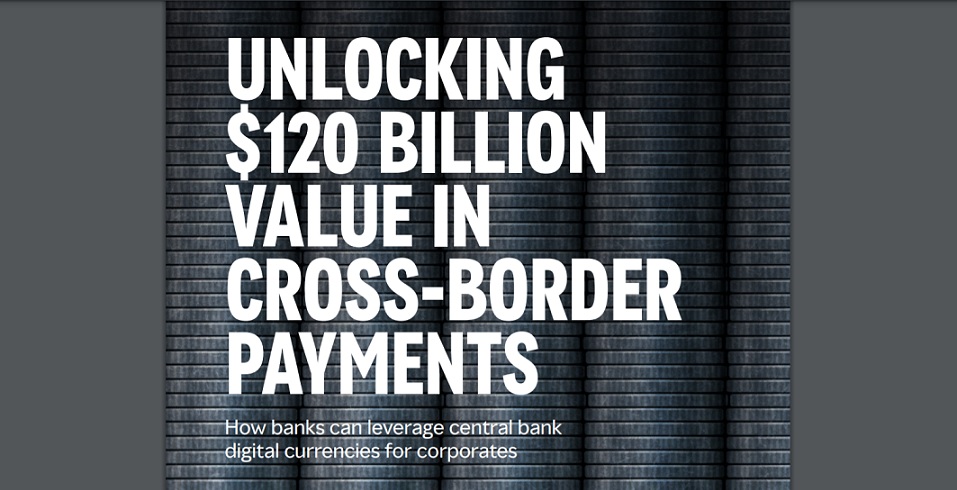
A full-scale, multiple central bank digital currency (mCBDC) network could potentially save global corporates up to $100 billion in transaction costs annually, according to a joint research report from Oliver Wyman and JPMorgan.
Global corporates move nearly $23.5 trillion across countries annually, equivalent to about 25% of global GDP. To do this, they have to rely on wholesale cross-border payment processes which remain sub-optimal from a cost, speed, and transparency standpoint. As well as resulting in significant transaction costs of $120 billion per annum, these processes also result in additional costs from FX conversion, trapped liquidity and delayed settlements.
“While working on some strategic transactions, our team was on high-alert with inconsistent messages coming from numerous banks along the chain. While the current systems have been optimized to handle day-to-day transactions, the non-regular, high-value and time-pressured transactions are an area to improve.” ― Senior Treasury Manager, Global Packaging MNC
While numerous private sector players, from the CLS Group to SWIFT, and central banks (such as the Hong Kong Monetary Authority and Bank of Thailand) have initiated various projects to resolve the existing pain points, we are yet to see a scalable and seamless solution that can work across countries, currencies, and payment systems.
„We believe that a multi-currency central bank digital currency (mCBDC) network could provide an effective blueprint to tackle many of these problems simultaneously, thereby making 24/7 and real-time, cross-border, cross-currency payments a real possibility,” said the authors of the report.
“I’m convinced that CBDCs could bring transactional cash management to the next level from the standpoint of Accessibility, Convertibility, Reachability, and Traceability.” ― Head of Cash Management, Global Technology MNC.
This paper builds on all the previous literature on CBDCs and aims to outline the implementation considerations for central banks to partner with commercial banks to develop, operate, and govern an mCBDC network.
Specifically, this paper outlines four critical elements required for implementation: (i) target design principles; (ii) key building blocks (minting and redeeming CBDCs, liquidity provisioning, market making, and foreign exchange payment-versus-payment settlements) (iii) roles and responsibilities of central banks, commercial banks, and other service providers (e.g. technology companies); and (iv) governance framework for managing network access and resolving disputes. It also details an alternative and complementary model of multi-currency digital corridor network.
While the implementation considerations could apply to participants globally, we have used the ASEAN region as an example, given it contributes approximately 7% of global crossborder trade and is home to thousands of European, Asian, and North American MNCs.
The end result: A full-scale mCBDC network which facilitates 24/7 real-time, cross-border payments and FX PvP settlements could save global corporates nearly $100 billion annually. Naturally, an mCBDC solution would trigger a rethink on how commercial banks and other foreign exchange providers may deliver their current offerings, however, we are encouraged by the potential for new business and operating models, which could yield long-term benefits for all participants.
For more details download the J.P. Morgan report:
Banking 4.0 – „how was the experience for you”
„To be honest I think that Sinaia, your conference, is much better then Davos.”
Many more interesting quotes in the video below: